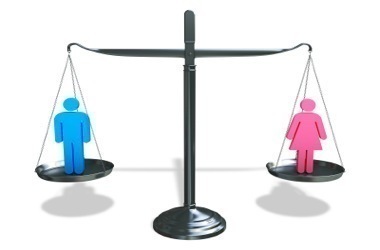The world of work has changed dramatically in our lifetimes. Globalisation, economic recession, technological advances, security of tenure, the rise of knowledge work and the decline of manufacturing, the growth of casualised and precarious work, the demographics of work and changes in gender roles are just some of the factors impacting on modern workplaces. What remains unchanged though, is that both employers and employees overwhelmingly say they want fairness at work.

In New Zealand’s largest-ever study of work, the National Conversation about Work, over 3000 employers, employees and job-seekers broadly said they enjoyed their work, cared about the people they worked with, were proud of the services and products they delivered and loved the challenges of working life. For many, work defined them and was a critical aspect of self identity and self esteem, not just a pay cheque. The vast majority of employers were responsive to employee needs and many treated staff as extended family rather than as units of labour. Universally, there was a strong commitment both in practice and in spirit to the idea of a “fair go” at work and to equality.
Tracking Equality at Work picks up where the National Conversation about Work left off. We have used the evidential basis of what people said to us, combined with other work we do such as promoting youth employment, monitoring women’s participation in employment, advocating for disability rights at work and examining employment-related discrimination complaints. We have developed new thinking about equality at work that fits modern workplaces and addresses systemic discrimination for disadvantaged groups.
New approaches to equality are emerging world-wide. The focus is moving from equal opportunities to equality of outcomes. It will no longer be sufficient to tick a box to say that equal opportunities programmes are in place and that workplaces prevent discrimination. In many jurisdictions now, workplaces are being asked to demonstrate that the workplace is equal and legislation is being introduced that is outcomes-focussed. Tracking Equality at Work is intended to provide new methods to track and advance equal employment opportunities in New Zealand.
Tracking Equality at Work includes the following new elements:
- The first set of Equality at Work Indicators developed in New Zealand to track progress towards equality at work
- A detailed overview of labour market participation
- A focus on the youth employment crisis, arguably the most significant economic and social issue faced by New Zealand society
- A new look at the gender pay gap and a new Pay Equality Bill designed to reinvigorate political and public discussion about this systemic inequality, and
- A set of recommendations for the Human Rights Commission and for the Government to push on with strengthening equality at work.
Tracking Equality at Work aims to ensure New Zealand remains up to date with new thinking about equality in modern workplaces and that it retains its position as an international leader in realising fairness at work.
Dr Judy McGregor
Equal Employment Opportunities Commissioner
